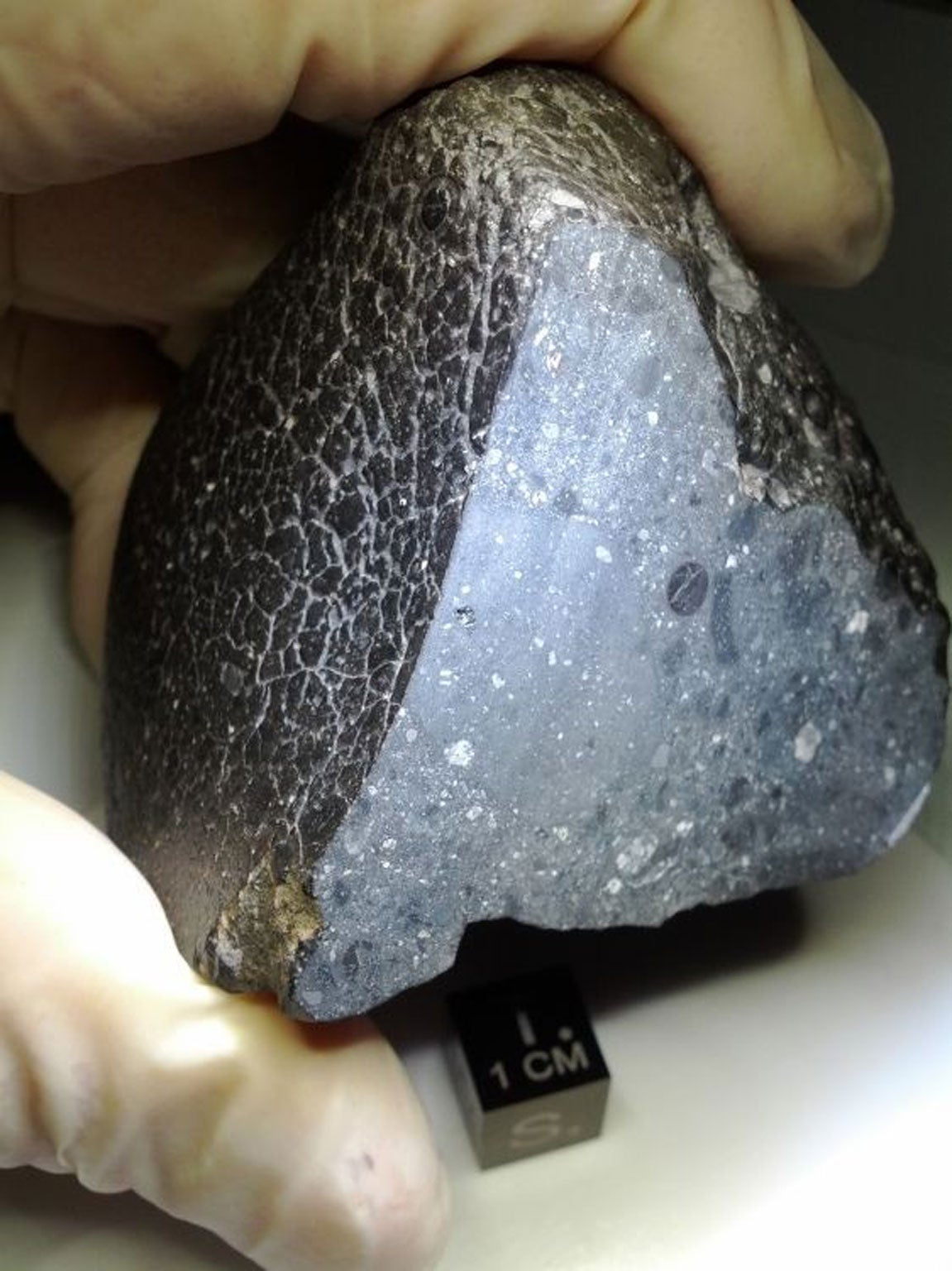'Black Beauty' rock is a 2 billion year old unique 'meteorite' from Mars, say scientists
Coal-coloured rock estimated to be 2 billion years old, and contains more water than most of the red-planet meteorites so far discovered

A coal-coloured rock discovered in the Sahara desert is a new type of Martian meteorite scientists have said.
Scientists have been analysing the meteorite for two years and the results of the study indicate it is different from other Martian rocks that have been discovered.
It is estimated to be 2 billion years old, and contains more water than most of the red-planet meteorites so far discovered.
The stone weighs 320g and has been given the formal name Northwest Africa (NWA) 7034 - but is nicknamed "Black Beauty".
A report in Science magazine says the rock shares characteristics with known martian meteorites, but also has some unique characteristics, namely its chemical composition and its age.
There's also evidence that it was altered by water.
Though the amount released during heating was small — 6,000 parts per million — it was still much more than other Martian meteorites.
Scientists said this suggested there was interaction with water near the surface during a time when the planet was mostly dry and dusty.
At 2.1 billion years old, it's the second-oldest known Martian meteorite that formed from a volcanic eruption.
"Here we have a piece of Mars that I can hold in my hands. That's really exciting," said Carl Agee, director of the Institute of Meteoritics and curator at the University of New Mexico who led the study published online yesterday in the journal Science.
There are thought to be 100 Martian meteorites in collections worldwide, most of which were discovered in Antarctica or the Sahara.
The oldest dates back 4.5 billion years to a time when Mars was warmer and wetter. About half a dozen Martian meteorites are 1.3 billion years old and the rest are 600 million years or young.
Scientists believe that an asteroid, or some other large object hit Mars dislodging rocks and launching them into space.
Most space rocks that fall to Earth as meteorites come from the asteroid belt, but a number can be traced to the moon and Mars.
Meteorite hunters trade rare rocks, which are often discovered purely by chance, for tens of thousands of dollars.
'Black Beauty' was donated to the University of New Mexico by an American who bought it from a Moroccan meteorite dealer last year.
Chris Herd, a University of Alberta meteorite expert, said the find was welcome since most Martian rocks that rain on Earth tend to be younger. And the latest find does not appear to be too contaminated, he said.
"It's fairly fresh. It hasn't been subjected to a whole lot of weathering," said Herd, who had no role in the research.
Join our commenting forum
Join thought-provoking conversations, follow other Independent readers and see their replies
Comments
Bookmark popover
Removed from bookmarks